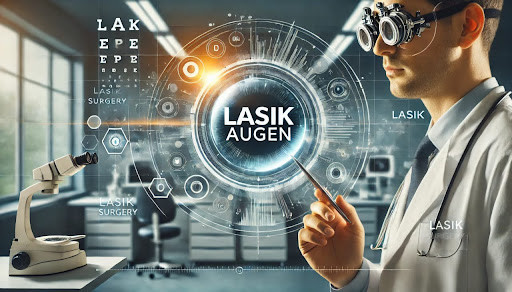Ophthalmology, the branch of medicine focused on the diagnosis, treatment, and prevention of eye disorders, plays a vital role in safeguarding one of our most precious senses—vision. As our eyes undergo significant changes throughout different life stages, from childhood development to age-related degeneration, ophthalmologists serve as critical guardians of lifelong eye health. Through comprehensive care, technological advancements, and patient education, ophthalmology contributes not only to clearer vision but also to the overall well-being of individuals across the globe snuseoulglobal.com.

One of the most important contributions of ophthalmology is early detection of eye diseases. Conditions such as glaucoma, cataracts, diabetic retinopathy, and macular degeneration can progress silently, causing irreversible vision loss if left untreated. Routine eye exams conducted by ophthalmologists can detect early signs of these disorders, even before noticeable symptoms appear. With timely intervention, many vision problems can be managed effectively, and in some cases, progression can be slowed or halted altogether. This proactive approach is crucial in reducing the global burden of blindness and visual impairment.
Ophthalmologists also play a pivotal role in managing chronic conditions that affect the eyes. For example, individuals with diabetes are at risk of developing diabetic retinopathy, a serious condition that damages the blood vessels of the retina. Ophthalmology offers treatments such as laser therapy, intravitreal injections, and surgical procedures to prevent or minimize vision loss. Similarly, glaucoma—a condition often associated with elevated intraocular pressure—can be managed through medication, laser treatments, or surgery, all under the care of a trained ophthalmologist. These interventions not only preserve sight but also enhance quality of life.
In addition to treating eye diseases, ophthalmology also encompasses vision correction and surgical interventions. Procedures like cataract surgery, LASIK, and PRK have transformed millions of lives by restoring clear vision. Cataract surgery, one of the most common and successful operations performed worldwide, allows patients to regain independence and function by replacing cloudy lenses with artificial intraocular lenses (IOLs). Refractive surgeries, on the other hand, reduce or eliminate dependence on corrective eyewear, offering greater convenience and visual freedom. The precision and safety of these procedures continue to improve thanks to advancements in ophthalmic technology.
Another essential aspect of ophthalmology is pediatric eye care. Children can suffer from congenital eye conditions, refractive errors, or developmental vision issues such as amblyopia (lazy eye) or strabismus (crossed eyes). Early diagnosis and treatment by pediatric ophthalmologists are critical to ensuring normal visual development and academic performance. Children may not always be able to communicate their vision problems effectively, making regular eye screenings and parental awareness vital components of pediatric eye health.
The aging population presents new challenges for ophthalmology. As people live longer, age-related eye conditions become more prevalent. Macular degeneration, dry eyes, and cataracts affect millions of older adults and can significantly impair daily activities. Ophthalmology addresses these challenges through tailored treatment plans, assistive technologies, and innovative research focused on preserving vision into old age. Furthermore, ophthalmologists often collaborate with other healthcare providers to manage systemic conditions—like hypertension or autoimmune diseases—that impact ocular health.
In conclusion, the role of ophthalmology in preserving lifelong eye health cannot be overstated. From infancy to old age, ophthalmologists provide essential care that protects and enhances vision. Their work spans early detection, chronic disease management, surgical correction, and patient education—each contributing to a future where visual impairments are preventable and treatable. With continued investment in eye care, research, and public awareness, ophthalmology will remain at the forefront of helping individuals maintain clear, healthy vision throughout their lives.